Lost Legacy: How Republicans Are Stalling the American Transition to Renewable Energy
Republicans consider the United States the world’s “indispensable nation”; but, when it comes to addressing the challenge of global warming, they are obstructing the shift to renewable energy and making America anything but a leader.
The shadow of Ronald Reagan loomed large at the second Republican Party Debate of the 2016 presidential cycle, held at the former commander-in-chief’s Presidential Library in drought-ridden Simi Valley, California. As the eleven “top-tier” candidates stood in front of the very same Air Force One that President Reagan flew on for an astounding 660,000 miles, the message coming out of their mouths was clear: a vote for them would be a vote for an extension of the Reagan legacy. Unfortunately, with respect to the pressing issue of climate change, the current crop of Republican contenders could not be more out of step with Reagan’s political record on the environment which, while not perfect, was based on scientific consensus, ideological fluidity, and even policy reform in some key areas. Why do contemporary Republicans make constant reference to Reagan’s example while proposing environmental policies that directly contradict his record? And what solutions do the current Grand Old Party frontrunners propose to the existential challenge posed by global warming?
Reagan: part free-market Superman, part anti-Communist crusader, part folksy grandpa who singlehandedly did everything from end the Cold War to create an American economic boom.
Reagan’s mythos is central to the contemporary conservative narrative because there is no other Republican president in the past fifty years who can be held up as an archetypal chief executive. Democrats have Bill Clinton, John F. Kennedy, and Franklin D. Roosevelt to choose from when making reference to an institutional pattern of party leadership and national progress (even Jimmy Carter’s post-White House career of human rights advocacy and democracy promotion has improved his historical standing). Republicans can look only to Reagan for contemporary historical legitimacy and for this reason the scope of his mythos has grown dramatically in recent years. When discussing almost any policy – foreign or domestic – current Republican candidates allude to the Reagan years and their supposed direct ideological link to “The Gipper.” This constant reference to Reagan has expanded the narrative of his actual record to the point of absurdity, making him a sort of mythological American creature: part free-market Superman, part anti-Communist crusader, part folksy grandpa who singlehandedly did everything from end the Cold War to create an American economic boom.
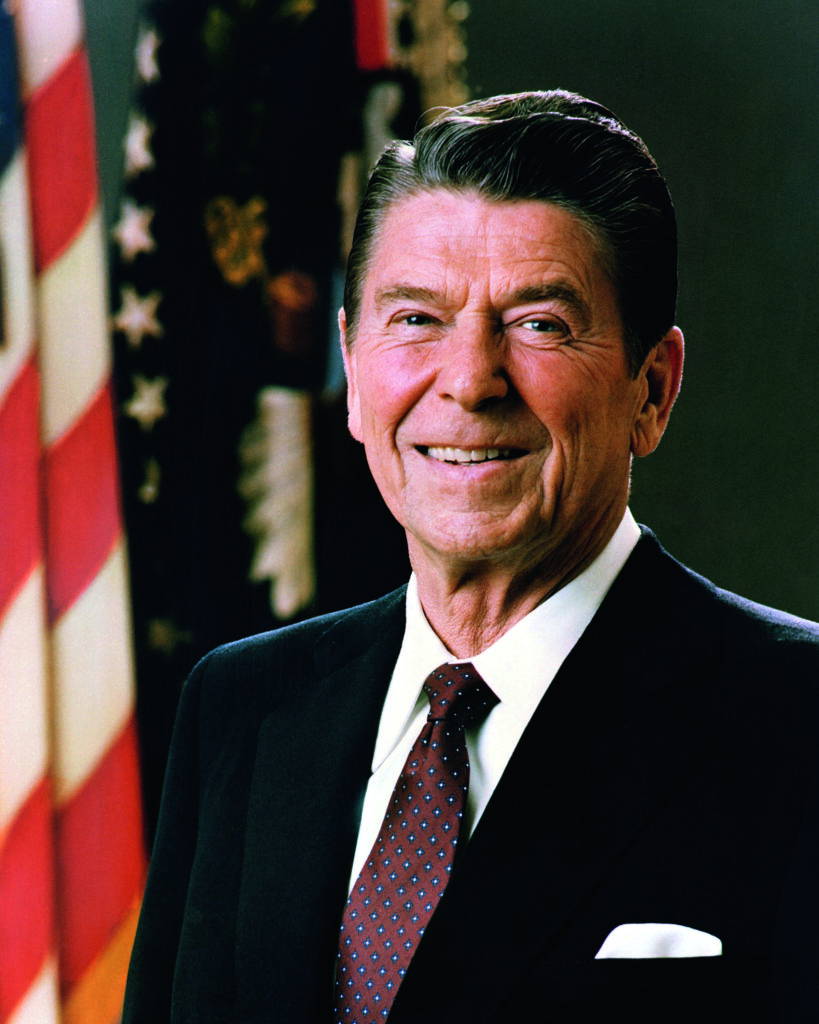
Of course, the reality of Reagan’s policies is more nuanced. A close examination of his record demonstrates that on many of the key issues of his time – some of which have direct parallels to today’s campaign – he acted more like a moderate than a hardcore conservative. For instance, the Immigration Reform and Control Act of 1986, signed into law by Reagan, granted legal status to millions of undocumented individuals; an action that would be considered blasphemous by conservations today. Similarly, when it came to ozone depletion caused by chlorofluorocarbons (CFCs), the central environmental challenge of the 1980s, Reagan performed like a downright liberal. When scientific consensus overwhelmingly demonstrated that CFCs were destroying the earth’s ozone layer, Reagan acted. On April 5, 1988, he signed the Montreal Protocol, putting into effect laws in the U.S. regulating the use of ozone depleting substances (ODS). At the signing statement, Reagan said that the Protocol represented “an extraordinary process of scientific study, negotiations among representatives of the environmental and business community, and international diplomacy.” To Reagan’s credit, as a result of the treaty, the global use of ODSs has dropped off and the hole in the ozone layer over Antarctica has begun to shrink.
A Changed Political Landscape
How times have changed in the Republican Party. Like in the 1980s, the scientific community has identified an environmental challenge with potentially devastating implications for humanity: global warming caused by carbon emissions from the burning of fossil fuels. However, even though scientists have demonstrated a clear relationship between carbon dioxide levels and increases in the Earth’s temperature, the majority of the Republican Party is reluctant to address the problem. Why did Reagan address the ozone challenge head-on while Republicans today largely deny that global warming is occurring?
The primary explanation lies in fossil fuels – the major source of carbon emissions – and their fundamental relationship to the global economy. While the use of CFCs was widespread in refrigerants and aerosols, there were relatively easy, more environmentally-friendly substitutes for these substances that could be transitioned smoothly into industrial use. More importantly, CFCs were not the lifeblood of the global economy in the same way as oil and coal have been for the past century. Transitioning from fossil fuels to sustainable energy has not been an easy process and the change threatens to restructure the entire global economy while causing significant financial dislocation in its wake. If this is the case, how can the shift to sustainable energy be made in a timely yet economically stable fashion?

In the United States, the public debate surrounding this conundrum has been rancorous, and the shift to renewables slow, primarily due to the obstruction of policy reform by the Republican Party. Republican politicians, however, are not the only culprits. In fact, their positions are a symptom of a larger problem in North American politics, namely the influence of special interests on the legislative process. After all, elected officials in a democracy are ultimately accountable to their constituents, and in the United States that means to their campaign donors and financial backers. For this reason, politicians do not simply act according to their personal beliefs, but rather to ensure a steady stream of campaign funding. Therefore, the fundamental impediment to a swift energy transition lies not directly in American conservative ideology, but rather in the underlying business and energy interest groups that comprise the Republican Party’s primary donor base, and who have much to lose from a speedy shift to renewables. To ensure that their businesses remain intact, these companies have lobbied heavily and funded generously a Republican party that is now dependent on their largesse.
Why did Reagan address the ozone challenge head-on while Republicans today largely deny that global warming is occurring?
Nowhere is the influence of the oil and coal lobbies on the Grand Old Party more apparent than in the current presidential primary campaign, in which not one Republican candidate has proposed a set of environmental policies to address the challenge of global warming. Instead, contenders have adopted three approaches to obfuscating the debate over climate change that are intended to slow down or halt any meaningful policy reform:
- outright denial of the overwhelming scientific consensus
- claiming that the “climate science debate” is not yet settled and that policy reform must wait
- arguing that no unilateral policy solutions to the problem exist and therefore that the USA should not do anything that would have negative consequences on the national economy
Climate Change Deniers
Several top Republican contenders, including Donald Trump, Senator Ted Cruz, and Dr. Ben Carson, fall into the first category of proud climate change deniers. In an interview with CNN in September 2015, Mr. Trump bluntly said: “I don’t believe in climate change.” Similarly, in a conversation with The San Francisco Chronicle Dr. Carson stated: “there is no overwhelming science that the things that are going on [global warming] are man-caused and not naturally caused.”
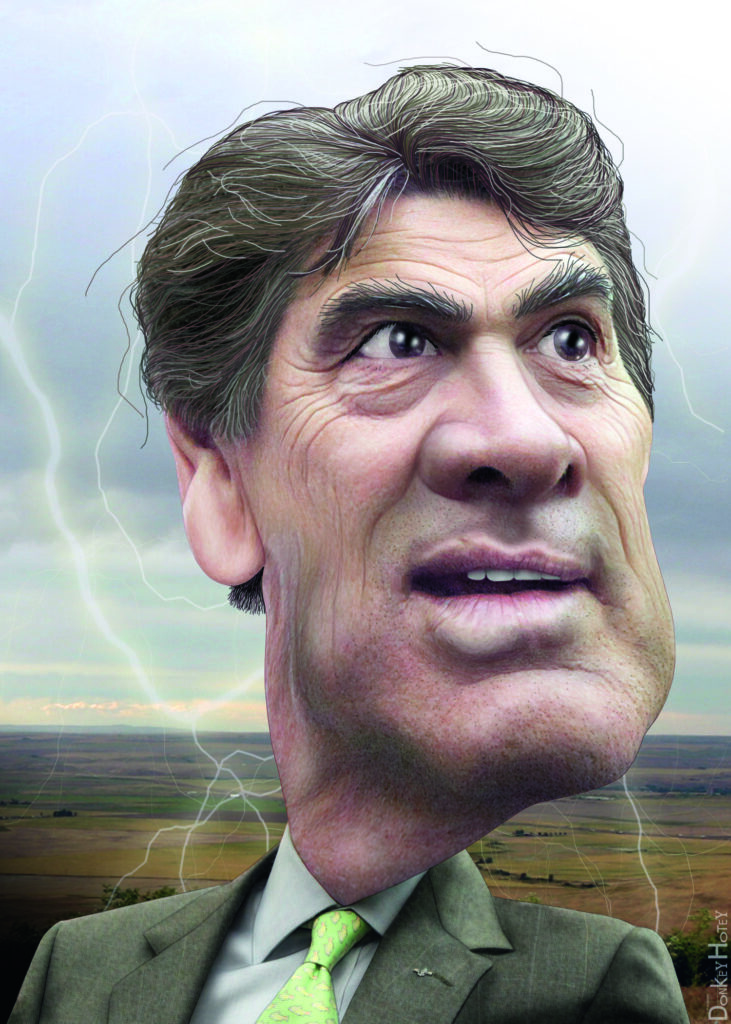
Senator Cruz, whose electoral strategy on every issue is to stake out the position farthest to the right of the pack, has been perhaps the most vocal candidate of the science underlying global warming. In an interview with Katie Couric, Cruz insisted that climate change is a “pseudoscientific theory” and that “satellite data shows there has been no significant recorded warming…climate change is being driven by politicians who want more control over our lives.”
For Trump, Carson, and Cruz, the stance against acknowledging climate change is purely political. They seek to appeal to the party’s most radical factions, who refute that global warming is real for no more logical reason than that the American left recognizes it as a reality. In the cases of Cruz and Carson, rejection of the science behind global warming is also necessary to assuage the fears of energy interest groups whose financing is important for outsider candidates.
Rick Perry Caricature. Photo: DonkeyHotey / Flickr
Meaningless Mantras
In the second group are those candidates who claim that scientific studies examining climate change are indeterminate and that further inquiry is necessary to come to a conclusion about how much the earth is warming and whether that warming is caused by human activity. These candidates, who include Jeb Bush and Rand Paul, are strategically trying to play both sides of the conservative electorate. They generally admit that some global warming has occurred, but they argue the causes of warming are unclear. By doing this, they appear less obstinate in the face overwhelming scientific evidence about global warming, but also placate the base of the party by implying that humans are not responsible for rising global temperatures.
Republicans adopting this second rhetorical position have embraced two much-ridiculed mantras.
The first is “I’m a politician and am not qualified to assess climate science.” The position that ignorance must result in policy inaction is, of course, absurd because elected officials make decisions about issues they are not experts on all the time. For example, most politicians are not economists, but they routinely make choices that impact the economy. In reality, for Republicans feigned ignorance is a tool used to pursue a strategy of “slow-walking” on a transition to clean energy. That is, by arguing that the climate science debate is ongoing, they can delay any significant policy change.
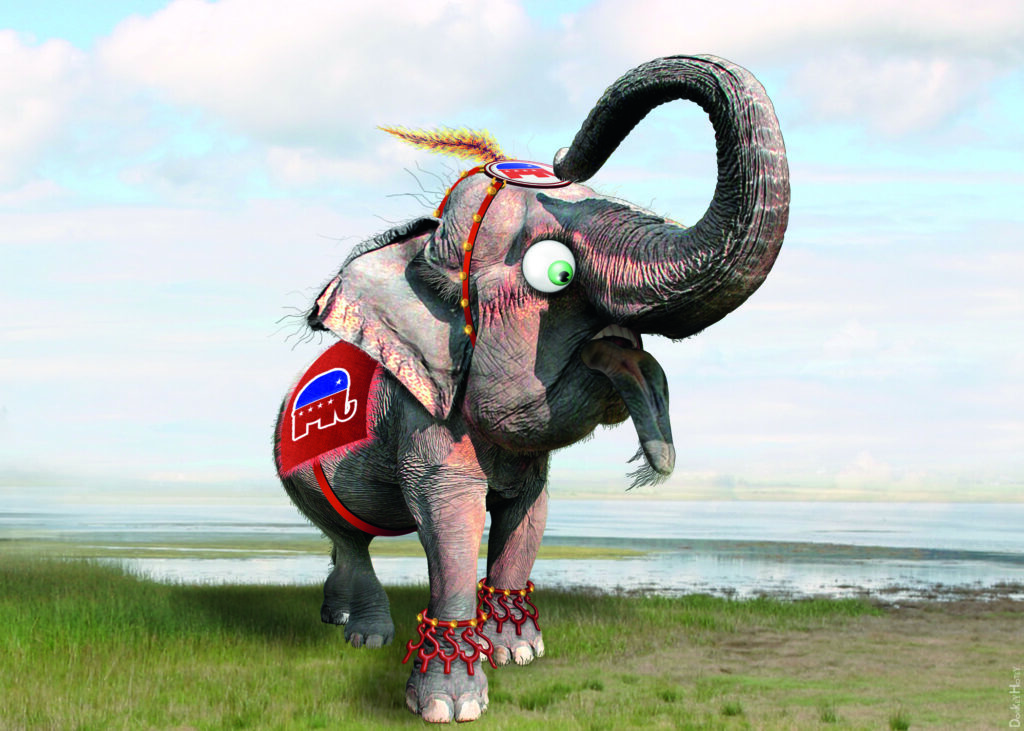
The second mantra we hear Republicans in this camp repeating is that “the climate is always changing.” This position is, in fact, a denial of anthropogenic global warming and contends that natural processes are primarily involved in recent climate change. In the fourth Republican debate in Milwaukee, Wisconsin, Rand Paul articulated the logic behind this position saying: “I think man may play some role in our climate, but I think nature has a role […] we’ve had times when the temperature has been warmer, we’ve had times when the temperature has been colder.” Of course, scientists who study climate change have demonstrated that the rapid increase in temperature levels are not the result of “natural” processes but of carbon emissions produced by humans.
The Do Nothings
Finally, in the third group are Republican candidates who accept that global warming is occurring, and who believe that it is caused by humans, but who argue that no unilateral U.S. solution to the challenge exists. These candidates claim that since greenhouse gases are produced collectively by the world’s industrialized countries – and that since China, Russia, and India which account for over 30% of greenhouse gas emissions do not appear likely to significantly reduce their output of greenhouse gasses – transitioning to clean energy in the U.S. is a futile endeavor that will have no outcome but harming its economy.
Senator Marco Rubio (Florida), and Governor Chris Christie (New Jersey) are the two leading voices advocating this third position. For instance, at the second Republican Debate Senator Rubio claimed that he was not a climate change skeptic, but he also argued that adopting progressive climate policy reform “would destroy our economy and make it harder to do business in America.” He went on to state: “we are not going to make America a harder place to create jobs in order to pursue policies that will do absolutely nothing to change our climate.” Following Rubio’s statement, Governor Christie chimed in claiming that government policy was not the solution to global warming. Like Rubio, Christie asserted that unilateral U.S. policy would have no impact on climate change and that the USA “should not destroy its economy to pursue some wild Left-wing idea.”
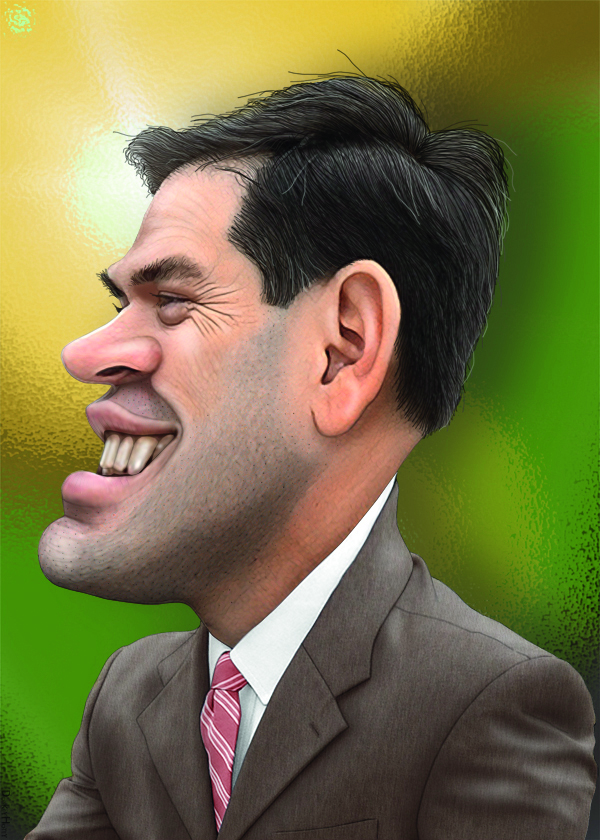
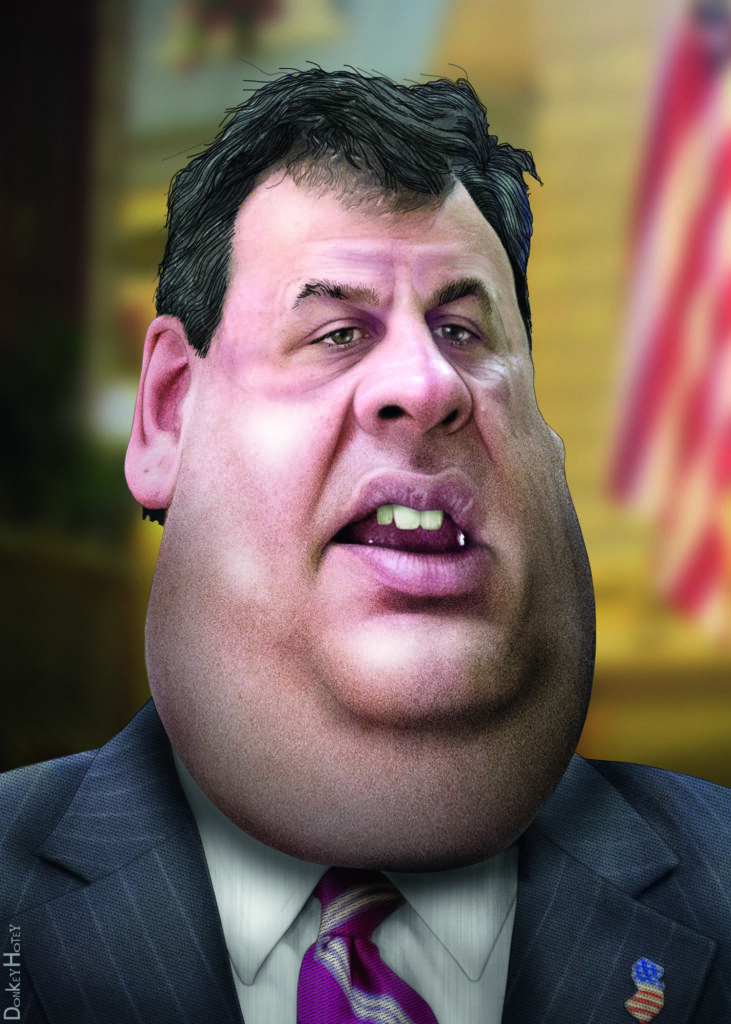
Global Leadership
Of the three approaches to global warming adopted by the Republican candidates, perhaps the third is the most paradoxical when examining the larger narrative of Republican foreign policy and its critique of the Obama administration. Senator Rubio and Governor Christie acknowledge that climate change is a serious threat to the future of the United States; however, neither of them is willing to address the problem because other countries will not act. Their position is that the U.S. should not lead on climate change, but in other areas of foreign policy, Republicans have doggedly harangued President Obama for passing the responsibility of global leadership onto others. Whether it be allowing Russia to carry out military operations in Syria or permitting Iran to create a sphere of influence in Iraq and the larger Middle East, Republicans claim that challenges cannot be met unless the U.S. plays its role as the world’s “indispensable nation.”
If the USA is to be truly “exceptional,” it must lead the world forward to address perhaps the greatest transnational challenge humanity has ever confronted.
When it comes to global warming, the ‘inconvenient truth’ for Republicans is that no solution exists without U.S. leadership. If the USA is to be truly “exceptional,” it must lead the world forward to address perhaps the greatest transnational challenge humanity has ever confronted. If the current Republican presidential candidates cannot look beyond short-term financial interests, craven political concerns, and oil and coal lobbies, their legacy will pale in comparison to Ronald Reagan’s.